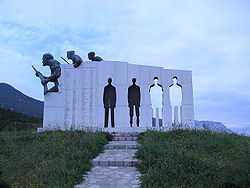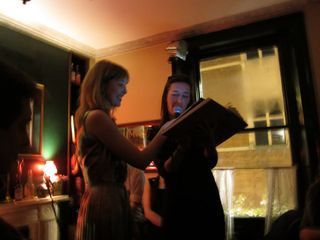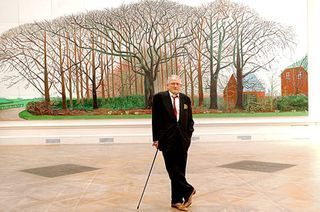Mary Beard's Blog, page 58
February 20, 2012
Les Ebdon and Millennium+
I suspect that no one quite knows what Les Ebdon (above in academic rig) will do as the head of OFFA. In the run up to his appointment I have been torn between distaste, on the one hand, for the vested interests of fee-paying schools and their parents (gosh, what are we paying for if some bloke is going to come along and take away the privilege) and, on the other, for the apparent lack of concern by Ebdon and co for subjects that I suspect they don't really understand (if you wnat Classics or Music to survive as high level, international subjects in this country, you'll have to do something to schools as well as to Uni admissions offices). Honestly, there's something vulgar about both sides.
I did, however, decide to take a look at the website of Million+, the think tank backed by a group of new univesities of which Ebdon is the chair. First let me say that it must be right that universities come in many shapes and sizes. I dont want every university to teach Latin, any more than I want every university to teach Sports Science (worthy as both those subjects are or may be).
That said, alarm bells rang looking at the stuff Million+ has just put out.
There's a new report from them, called "Teaching that Matters". It's about the teaching revolution" that is "underway in modern universities", and the new approach to the student learning experience. No more boring PowerPoint presentations, it said.. but interactive learning. Well let's leave aside the fact that many of us have never done much PowerPoint anyway and have always been pretty interactive, face to face... it's what this report doesn't say that is a bit alarming.
I searched the full report for the word "read". I t came up just once, as a past particple, in a soundbite from a satisfied student from the University of Bedforshire (Ebdon's uni). "The Business Pods were actually the reason for my choosing to come to University of Bedforshire. I read a lot about other universities but not had such a creative looking environment". I had another go with "book"; that came up only in the word "bookmark". Then "library" produced just a reference to how the new Business Pods has replaced "library inductions".
Now many flowers should bloom in higher education, but it is hard not to worry that Ebdon in his role as Access Czar comes from a background that doesn't actually notice books, libraries or reading ... and babies might be about to get thrown out with the bathwater. In the end, we want access AND high academic standards (and high academic standards do include reading). Most of us working in higher education dont think that access is incompatible with high standards; I have a feeling that Ebdon is a bit more one sided.
February 16, 2012
Germany in charge of Greece...the history

To vary the diet of misery stories about Greece and Germany, newspapers have turned an occasional backward glance to World War II. It's hardly surprising, so the argument goes, that the Greeks -- particularly the elderly ones -- don't have much time for the Germans. Look at what the Germans did in the war. One intrepid Telegraph reporter made it all the way up the motorway from Athens, to the village of Distomo (near the monastery of Hosios Loukas), where one of the most notorious German massacres took place. More than 200 civilians were killed in terrible reprisals for the murder of three German soldiers. . . and reparation claims are still on-going (the bleak memorial is above).
There the reporter dug out an octogenarian survivor of the massacre, three years old at the time, who dutifully -- and poignantly, to be honest -- talked about "a German knife held to our throats" (he was actually talking about now not then... but the point was made).
What's odd is that there hasn't been such interest in the first time, more than a hundred years before World War II, that Greece was quite literally under German rule.
After the ghastly series of massacres (even worse than Distomo) that are now glorified with the title "Greek War of Independence", the "Great Powers" were faced with what to do with this wrecked and bankrupt country. They got together and looked around the Western world for a suitable monarch. Unsurprisingly perhaps, some of the most plausible candidates didn't much fancy being parachuted into the new nation. But eventually, in 1832, they found Prince Otto, the teenaged son of Ludwig of Bavaria (OK not technically "Germany", but you know what I mean), who didn't or couldn't say no.
He turned up in Greece, with a retinue of German advisers and architects. Many of them had been brought up on a diet of ancient Greek literature and art, and that formed their vision for the new country country too. Its unifying symbols were to be the heroes of art, culture and politics (minus the democracy) of fifth-century BC Athens. The first plan was that Otto would have his palace on the Acropolis itself (with the Parthenon as a rather posh garden ornament), but Ludwig had security concerns for his boy and insisted on the palace being built down below (it's now the Greek parliament building). Instead archaeologist moved onto the Acropolis, they started to excavate the monuments (and in the process remove anything -- Roman, Byzantine, Ottoman -- that didn't date to the favoured fifth century BC).
One of those extraordinary nineteenth-century spectacles took place to inaugurate the digging in 1834. To the accompaniment of bands playing and girls in mock-up ancient dress, waving laurel wreaths and banners depicting the goddess Athena, Otto rode up to the top of the Acropolis and was installed on a throne in the Parthenon (the bones left over from recent conflicts had presumably been cleared up). Grand speeches were given in German, before Otto took up his digging trowel and tapped it against a column to inaugurate the excavations.It was also the start of a long reign.
But what happened to young Otto in the end? Well German rule finally didn't work out. There were attempted assassinations and coups, and eventually in 1862 he was lifted out, back to Bavaria, by a British gunboat.
The next man on the Greek throne was another teenaged European prince -- this time a Dane, George 1. A moral?
February 12, 2012
Do I have any favourite apps? Well three...
I confess to being a bit too fond of my smart phone. Yes, I check my email with embarrassing frequency, and I tweet a bit too often (@wmarybeard). But I have never really got into apps, as such... or at least not into the ones that go beyond the very basics. I am awfully impressed by their cleverness, but I am never quite sure why I'd want them.
So, for example, I really dont want to go round a museum looking at my phone, rather than the stuff (and actually I dont observe many people doing that, awesome as some of the museum phone guides are cracked up to be). And further down the food chain I am baffled why anyone would want to buy themselves a hypochondriacs phone guide to medical symptoms.. or even a free app calculator for dividing a restaurant bill (err pencil and paper??).
But I have got three firm app friends, two old and one more recent.
The everyday star is the UK train times app. This doesnt just let you check train times (like obviously), there is a natty little button to click, which tells you the "next train home" ... brilliant when you're going from Kings Cross to Cambridge, because it tells you the platform the train is going from some while it comes up on the departure board.
The next is the BA app, which lets you travel entirely paper free, downloading your boarding pass onto your phone, then just handing it to the guy at security. Or in theory it does. I have had fun doing this (even if it hasnt exactly been in everyday use . . . it's the thought that counts), but have always wondered what would happen if you ran out of battery or you couldn't get a signal at Heathrow. So I have always printed out my boarding pass as well, which rather defeats the object.
My latest acquisition.. actually a present ... is slightly more cerebral. It's SPQR, a brilliant little app which brings up loads of Latin literature right onto your phone, and also Lewis and Short's Latin Dictionary. Now I don't need Virgil all that often, when I'm on the move .. but you'd be amazed how often I turn to a Latin dictionary.
It really has been a life saver...I promise
February 8, 2012
Hatchet Job Announced
Last night was the Hatchet awards at the Coach and Horses in Greek St, sponsored by the Omnivore. I'd been shortlisted for my (mildly donnish, finger wagging) review of Robert Hughes' Rome. But wasnt remotely expecting to win against the illustrious competition... which made the evening all the more enjoyable, as there were none of those anxieties of anticipation, or of "what am I going to say if I win" (or, more to the point, of 'if I have another glass of wine I wont be able to say anything if I win").
The well-deserved winner was Adam Mars Jones for his review of Michael Cunningham's By Nightfall (who was presented with a gilded hatchet, a cake in the shape of a book (into which the hatchet went) and a years supply of potted shrimp, that well known omnivore (supplied by the Fish Society.. who also did the food all evening).
But the highlight of the evening for me was the dramatised reading of the cautionary tale of contemporary reviewing ... a "boy who cried wolf" riff -- performed by the young ladies of omnivore (in my wobbly photo above).
You can probably guess the plot . . .young reviewer starts out on his trade, he has a book which he doesn't much like but has got all kinds of connections with the author, so says that it is dazzling etc... his reviewing career goes on and he's always saying the books are dazzling...then he gets a book to review that he really does think is dazzling, but by then no one believes him.. it sells 70 copies, the author kills  himself and the publisher goes bust, and....
himself and the publisher goes bust, and....
(That hardly captures the hilarious cleverness, but you get the message....hope the omnivore will  podcast a rendering on their website...?)
podcast a rendering on their website...?)
In truth a good time was had by all. As you can see from the pics. Spot Lachlan Mackinnon, one of the others on the shortlist.
And as so often, I cam away with a classical puzzle. If you were opening a motorbike and moped shop (mostly maintence not sales) and wanted a nice classical name for it... but not too abstruse, one that might resonate widely...what would you go for?
February 5, 2012
Cicero's words still hit the spot: Hungary 2012
A few years ago, I spent some innocent hours checking out how often Cicero's words, at the beginning of his first speech against Catiline, had been re-used in modern political debate. Cicero, as you'll remember, is trying to drum Catiline, the internal terrorist, out of Rome in 63 BC .. he gets up in the senate, where Catiline himself is sitting, and off he goes...
How long will you abuse our patience, O Catiline...?
Quousque tandem abutere, Catilina, patientia nostra?
There turned out to be literally hundreds of re-applications of this neat little slogan, from the Congo to Brazil, in protests public and private and intellectual (Camille Paglia claimed to have based her campaign against Foucault on Cicero's campaign against Catiline).
I hadn't picked up too many of them recently. But then I saw this picture (at the top) in the latest issue of THE.
A couple of the guys protesting in Budapest against the Fidesz party's attempts to rewrite the constitution were carrying a banner reading "Quousque tandem . . .".
So there is life in the old dog yet (though maybe I'm doing them an injustice, but I wasnt sure that the caption writers on THE had a clue what the banner meant . . . I suspect they thought it was Hungarian).
But the odd thing about Cicero's slogan is the way here (as almost always in recent years) its political "direction" has changed. When Cicero first spoke this, he was the voice of authority, attacking the revolutionary counter culture in the shape of Catiline. In Hungary, his words are being used by the opposition in their struggle against authority . . . I wonder whose side Cicero would have been on.
February 2, 2012
Equality and Diversity Training: Cambridge University's Own Goal
I have just scored 100% on the most worthless exam I have ever sat -- the Cambridge University "Equality and Diversity Essentials" test online.
I have had some experience of the futility of online tests from the USA, and had always rather boasted that the Brits hadn't gone down this silly route. So when I was notified that I would not be able to be on my Faculty Appointments Committee or my Faculty REF Committee (of which currently I am the Chair) unless I took the Uni online training course, I felt I would pass on the opportunity...
Look, if I don't do the training and the test, just think how many days I save by NOT being on the Appointments Committee or chairing the REF (probably, if you take into account writing the REF statememts, a good 21 days.. attractive eh?). But, in the end, I thought of my mates who are trying to run the Faculty and how difficult it would be for them if I didnt do it (we havent got enough senior women, after all).. so I gave in.
And I suppose I thought that, resistant as I was, I might learn something .. like I had learned somethimg from the Speed Awareness Course I did a few years ago.
No such luck. This was a very bad way of spending 90 minutes.
Let me get this straight. I have no doubt that the University of Cambridge has a good bit still to do in equality terms (and I'm writing as someone who was for a few years the only woman University Lecturer in her Faculty.. so I know). And I have no doubt that these problems cross all levels of appointment, from temporary cleaner to regius professor, from physical disability to race or gender.
But the one size fits all version of 'equality training' in this online course could have satisfied no one. And I suspect that, if there were some unreconstructed old fogies in my Faculty (as it happens, there aren't-- even if 20 years ago there probably were), they would have been sent running into their unreconstructed bunkers by this course. It would have made matters worse rather than better.
For a start, equality training needs more than platitudes (amyone can agree with platitude); it needs a bit of specificity. There are some similar -- and more very different -- equality issues when it comes to appointing a Lab technician or a Professor of History. The course I have just done is clearly an off the peg package (loads of stuff about "halls of residence" which we don't have); and it doesn't engage with any of the major issues which face academics in general, or the particular circumstances in Cambridge -- and certainly almost none ofthe issues which face classicists.
There is still an issue, for example, about how far the highest level expertise in Latin and Greek language is as easy for ordinary women (or men) to acquire -- as for certain priliveged groups of independent school educated guys. And it's something that we need, in our Faculty, to keep in mind and discuss (as, I can assure you, we do).There is nothing whatsoever in this test package to help there.. nothing at all, not even a genuflection (and I imagine same would be true for Physics appointments, with all the different nuances that come with different subjects). Instead it is full of platitudes.. reminding you that if you find something offensive (in equality terms) you should look the offender in the eye ("maintain eye contact"), or insisting that you should say "X has epilepsy", not "X is an epileptic"... with a load of well meaning stuff about fair treatment, level playing fields and so forth.
None of this is bad in itself, and I think all my colleagues would sign up to the platitudes on offer .. who couldn't? But if you want actually to do something about the apparent disparity of opportunity for (say) women (or whoever) at the top of the Cambridge hierachy, this stuff is not only a waste of money, not hitting the targets ...but it's also a terrible waste of money.
There is a big job to do in this respect, both in Cambridge and also through most of the university sector. And that means working at the micro level, and drawing people into the project ... it's about consciousness raising in the old sense and about capitalising on the strides we have made since I took up my job (people really did use to ask women what they would do about childcare.., and there are similar advances with other 'minority ' groups.. not that women are a minority!)
But nothing comes from getting us all to sign up to slogans, on-line late at night, with our brains out of gear. And, of course, one suspects that a good part of the motive for the whole exercise is covering the university... if anyone challenges an appointment, don't they want to say "but all our appointing staff are 'equality and diversity trained'". But this is equality and diversity on the cheap. Can we, perhaps, calculate the number of person hours spent on this test and then work out how - with those hours -- we could better have served the cause of equality and diversity. Answers in comments please.
I would love to share the test with you, but -- no doubt for commercial reasons -- it is only available with a Cambridge 'Raven " password (so you've been spared).
(PS my friend, the excellent Athene Donald is the Cambridge Gender "Champion".. yes that's the title... Please don't blame her for this rubbish.)
January 31, 2012
What's the problem? Nail technology or league tables?
I've heard quite enough about 'Mickey Mouse' qualifications today -- and what Mr Gove and his friends are doing to clean this little mess up. No longer will schools be able to count a BTEC in Fish Husbandry as the equivalent of 2 GCSEs. And you won't be able to count a Horse Care diploma, or Health and Social Care, as equal to 4 GCSEs. The same goes for Nail Technology . . . . I have to confess, I'm not quite sure what this is, how many kids ever took the subject, or how many GCSEs it counted as. Certainly not one of my own specialist subjects, as anyone who has ever looked at my nails will confirm.
The argument is clear. Schools were using these non-academic qualifications to scoop up GCSE equivalents, and so creep up the league tables . . . which was fine, except the pupils soon found that, when they went on the job market, fish husbandry didnt have quite the same selling value as History and French, or Physics and Chemistry.
True, I'm sure. But isn't the problem the league tables, not the subjects.
Give any intelligent group of people (such as school teachers are) a competitive rank order, with funding implications and some pretty arbitrary rules, and they'll soon find a way to work the system. if it's not Nail Tech, then it's the other obvious trick of pouring resources into trying to push kids who might be in the running for a D in GCSE up to a C -- rather than push the As up to an A* (because it's much more valuable in League Table terms to up your proportion of kids with 5 GCSEs at C or above, than to up your proportion of A*s).
So change the rules, get rid of the Nail Technology route to success, and they'll find another way to get the best out of the system. And anyone for whom Fish Husbandry might have been exactly the right course will now presumably be persuaded out of it.
Of course they'll find another way. It's exactly what hundreds of university departments are currently doing, after all,in trying to get the best out of the REF.
And Doctors have been at it for years. We all know how they do it. If the rule is that a certain percentage of people have to get an appointment in 48 hours, then you have a rule which only allows most people even to request an appointment on the same day (that way you can get a perfect score)... and god help anyone who wants to plan ahead and get an appointment for 10 days time.
The fault isn't the doctors' or the lecturers' or the teachers'. It's what the league table culture forces them to do. That's what needs to be done away with.
January 28, 2012
Which academics have turned down honours?
It's a dilemma which most of us aren't going to have to face. But I'm sure many of have enjoyed this particular "what if...." question.
"What if I was awarded an 'honour'...MBE? CBE? Knighthood? .... would I accept it?"
Yes, because I would be dead chuffed, and an hour or two at Buckingham Palace would be fun (and it wold be nice to have something to put on instead of my Mum's old headgirl badge when the posh invite says "honours will be worn" ? Yes, because it is really a tribute to those I work with and my whole institution? (Never quite sure how much I believe that one?) No, because the whole parade is just a hangover from the days when we really did have the empire that most of these medals proclaim? No, because just look at the company I'd be keeping? And so on.
And then of course there is the question of Which Honour. I dont imagine that the OM has ever been turned down (only 25 of them at a time, and nicely discreet, with no imperial undertones)... But what about "Dame"? Useful presumably for getting upgraded on an airplane, but fancy actually living with a silly title like that. Imagine how embarrassing it would be coming over the tannoy at the dentists.
Anyway, when there was the razzmattazz earlier in the week about the celebs, writers and artists who had turned them down between 1951 and 1999 (Lucian Freud, Grahame Greene and co), I found myself wondering which academics had done the same.
The newspapers hadn't been quite as interested in the university refuseniks. But when I managed to get hold of the full list, it actually sprung a few surprises.
In truth academics in general seem to be quite keen on medals, even the leftiest of them. I remember Moses Finley being over the moon with his knighthood. So I think was Edmund Leach (despite writing a funny little anthropological account of the dubbing ceremony, comparing it to a pig sacrifice in Borneo). And "Professor Sir...." does trip off the tongue very nicely, I suppose.
So who was offered and didn't accept? (Remember that the published list only included the dead . . . the living refuseniks remain officially anonymous). All the same, I would never have guessed about this lot:
Norman Baynes, Byzantine Historian at UCL (turned down knighthood in 1951)
T. S Ashton, Economic Historian at LSE (turned down knighthood in 1957)
Francis DNA Crick, (turned down a CBE in 1963, but on the OM principle accepted one of those in 1991)
F R Leavis (turned down a CBE in 1966, but later accepted a CH... almost as exclusive as the OM)
Paul Dirac, the physicist (turned down a knighthood in 1953)
Edgar Lobel, the papyrologist (turned down knighthood in 1955)
Ivan Margary, Roman historian (turned down OBE in 1966)
Professor A Robertson (turned down a CBE in 1965)... not sure who he or she was
Gilbert Ryle, the philosopher (turned down a knighthood in 1965)
That's in no particular order, and I must have missed some.
I do find myself a bit puzzled, though. There is obviously a bit of the 'waiting-for-a -more-exclusive-offer' (ie OM, or CH) going on here. But not much. And, by and large, the gongs being refused are towards the top of the pecking order (not an MBE in sight). And these don't look to me like a bunch of well known radicals (though there's at least one paid up member of the awkward squad on parade here).
Maybe it's simply a matter of plain old academic down-to-earthness, rationality and dislike of pretension.
January 24, 2012
What's the price of cheap filming in Greece?
One piece of apparently good news is that the Greek authorities intend to reduce the price of filming on major Greek archaeological sites. You'll now be able to film on the Acropolis for a mere €1600 a day (down from €4000 in 2005, and a whole lot cheaper than the equivalent in (say) Italy).
This may be a false bargain for the film crews. I doubt if they can provide much practical support for that amount of money (the electricity, the guy with the keys etc.), and I strongly suspect that you won't get an exclusive on the Acropolis at that price. Go and try and make your movie and I bet you'll find another couple of film crews also on the job.
But there's worse. The Greeks are presumably aiming at 'big motion pictures' or adverts (see the joke above) -- but for documentary filming there is more to these prices than just the cash.
I have never filmed in Greece myself, but I know academic colleagues who have. And they say that one of the real downsides of documentary filming in Greece is that the Greek archaeological authorities insist on vetting the script before giving permission for the filming.
That means (and it's understandable perhaps) that you wouldn't be allowed to film on the Acropolis if you were going to say that Elgin had got it right and had actually rescued his marbles (ever wondered why all tv programmes come out anti-Elgin, well now you know). But it goes beyond modern/ early-modern politics. The script vetting comes right down to the interpretation of classical history and culture. Try saying that the god Apollo was a god of plague as well as of light and purity and, I'm told, you'll have a struggle on your hands. You'll need to go armed to the vetting meeting with a copy of the Iliad (which says just that) under your arm, and be prepared for a fight. (The fact is that Greek authorities dont like nasty aspersions being cast on their ancient gods. Plague bad, light good.)
It's true I have all these stories second-hand (but i have no reason to disbelieve them). Makes you realise that, for the likes of me, 'cheap' filmimg wont be quite as simple as it's painted.
January 19, 2012
Is Hockney any good?
Sometimes there are advantages to being married to an art historian. On Tuesday, it was going to the opening of the David Hockney exhibition at the Royal Academy -- and exhibition of his recent landscapes (mostly of Yorkshire).
There had been loads of publicity, advance reviews and tv programmes about these pictures, and I hadn't much liked what I saw. Quick big stuff, I thought. And not actually very interesting (even if you are a fan of Yorkshire). In the event, I thought the show WAS much more impressive than I had expected (not sure if it was interesting). . . but that's another story.
The really amazing thing was the crowds of people. This was the opening (usually at the Royal Academy a fun, well-oiled but relatively demure occasion) and there were people queuing to get in right across the courtyard. When you got inside there were loads of photographers lined up the stairs, waiting for the celebs and ostentatiously not lifting their cameras for the likes of us (thank god).
So why the interest?
Well partly because Hockney has become a 'national treasure'. As the husband observed, while we waited in the queue, most people tend to confuse Hockney with Alan Bennett; true enough I thought. In fact Hockney did a great, and generous, and self-effacingly eloquent speech to celebrate the opening, which certainly deserved 'treasure' status. He was in fact back-handedly nice about the Royal Academy itself, saying that it had been really needed in the 18th century, and in the 19th century... not so sure about the 20th century, but needed again in the 21st. You couldnt help but warm to him.
But the pictures? Well I thought that some of the really big ones of trees and roads etc were wonderful in an 'in your face' kind of way; but there were too many too hurried paintings which didn't seem to me to be about very much ul.-- and the few early things from the 60s were memorable. The audience seemed to be divided between the paid up fans, and the academic trashers, determined to say that the whole thing was horribly over-rated and the pictures far too full of meaningless twirls. (The husband rightly queried why so many of the big images were made up of metre square panels...what did this offer over a simple single big canvas? what was the point?)
But the funniest comment was in the coat queue, from a famous art dealer of the 60s, who had not been uninfluential in the Hockney rise. "Never thought I's have to queue to see Hockney" he said... and reported to all of us waiting in line that there had been a free preview (and supper) the night before. You could just walk in, he claimed, if you said you were a friend of Hockney.
Mary Beard's Blog
- Mary Beard's profile
- 4112 followers













